A sampling of the latest Irish books on offer.
RECOMMENDED
Brotherhood, a stunning, 240-page book of photos, captures the heavily-Irish New York Fire Department in all its rugged, poignant suffering and glory.
Pity Frank McCourt, who was drafted to write the introduction. His words are somehow supposed to stand alongside these extraordinary images. Somehow, he pulls it off.
“We don’t have to go to the movies anymore for our heroes. We don’t have to turn on the television. Our heroes are down the street, chatting at the firehouse door.”
The Pulitzer Prize-winner from Limerick writes of the only interactions many New Yorkers ever have with the FDNY, holding up their kids to wave as they speed to a blaze, or seeing them shopping in a supermarket.
“There’s something remarkable about these men in helmets and turnout coats discussing the evening meal. You think there’s gonna be plain American food on the table that night or that an Italian is seducing Irish palates away from spuds and steaks. But no, [they] are discussing Thai chicken curry, and you’d like to be invited.”
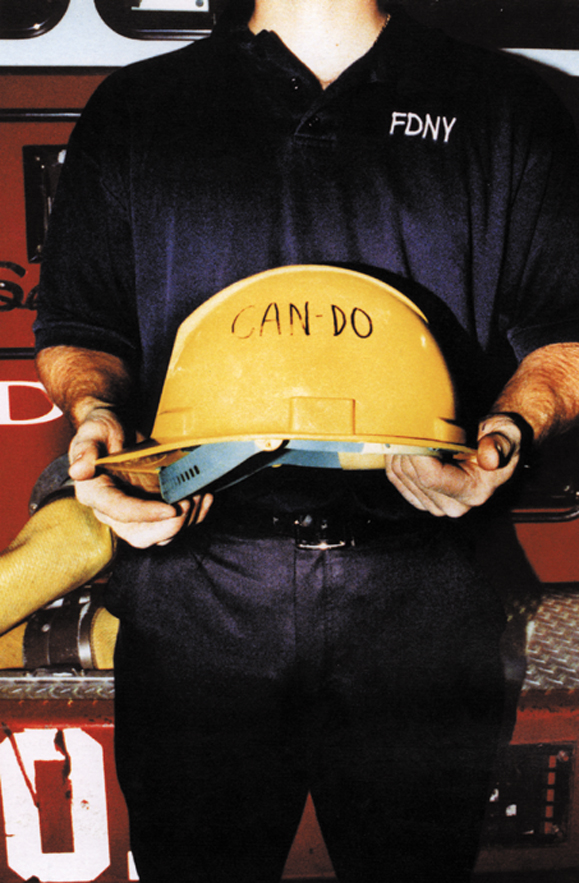
Brotherhood — which also includes short essays by Mayor Rudy Giuliani and Fire Commissioner Thomas von Essen — is the brainchild of an ad executive whose midtown-Manhattan office is a block away from a firehouse that lost 15 men on September 11.
Believing this was something that needed to be captured, 60 photographers eventually donated their skills, and chronicled the post-9/11 FDNY. (The names of the 343 fallen members of the FDNY also run throughout the book, and the endless list of Irish names — including two victims named Tom Kelly is heartbreaking.)
To add perspective to the FDNY’s death toll, consider what Commissioner Tom von Essen writes: “The total number of those who had given their lives in the line of duty in the entire 136-year history of our department was 752. On September 11, we lost almost half that number in a single terrible morning.” All proceeds go to victims’ families. ($29.95 / 240 pages / American Express Publishing)
MEMOIR
Anne Robinson’s weak link is certainly not her Irish link.
In her new book, Memoirs of an Unfit Mother, the sharp-tongued, bespectacled TV game show host writes at length about her Irish roots.
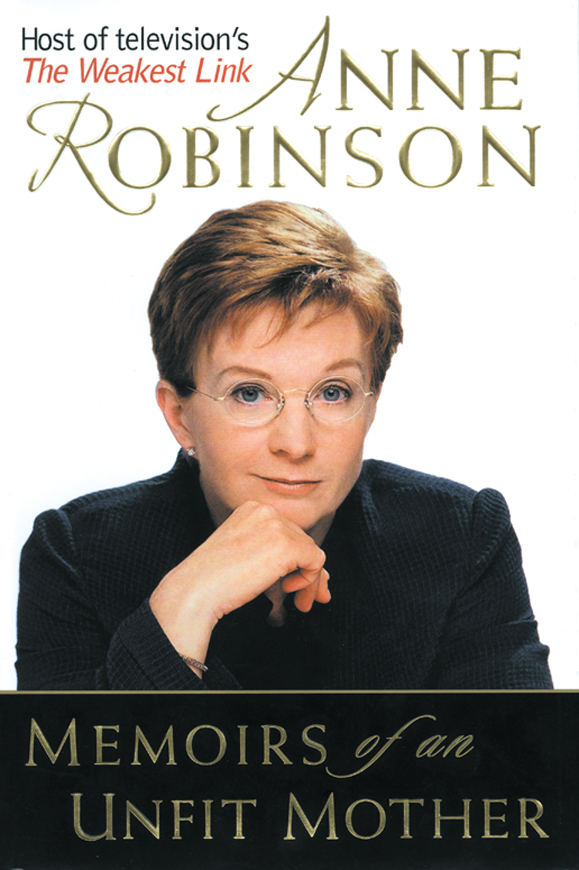
Robinson’s family, the ex-journalist writes, “was part of the mass exodus from Ireland. Peasants who came to Liverpool (England) during the famine of the mid-eighteen hundreds.”
They were humble, yet driven to succeed. “Quite how a family of Irish peasants developed such grandness and appetite for all things luxurious plus, admirably, an appetite to make money that provided for high living, heaven knows.”
Robinson’s sarcastic Brit (or is it Irish?) sensibility dominates Memoirs of an Unfit Mother. Ultimately, the book is a provocative read, certainly by celebrity bio standards.
Prior to donning her trademark scowl for The Weakest Link, Robinson was a pioneering British journalist, who even covered the Northern Ireland Troubles as they broke out in the late 1960s. Ultimately, Memoirs becomes an eye-opening journey through the elite U.K. journalism world of the not-so-distant past, which was rife with sexism. Things get more personal, and painful, when Robinson explores her battle with alcoholism, and her legal fight for custody of her daughter. ($22 / 325 pages / Pocket Books)
_____________
In Minuteman/Activist: To Promote the General Welfare, 85 year-old Bill McCullough writes affectionately but honestly about growing up in the South Bronx as a member of New York’s small but vibrant Irish Protestant community.
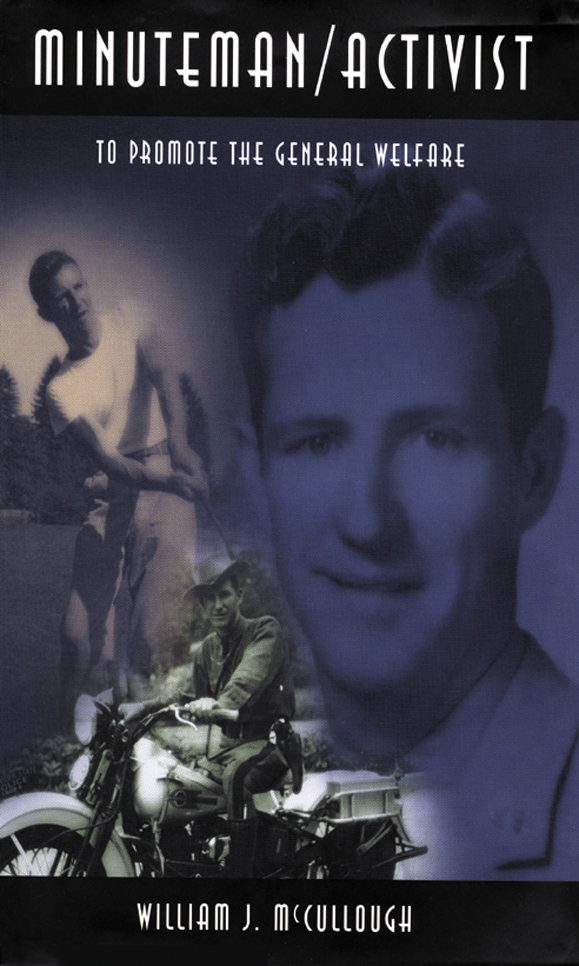
The son of immigrants from County Down, McCullough faced adversity, from a youth of juvenile delinquency to a later resignation from the NYPD because he refused a bribe from a superior officer.
Yet the bulk of McCoullough’s book explores how he has spent the better part of his life seeking to make positive contributions to his country.
McCullough’s life has been nothing short of fascinating. He likes to point out that his background is similar to Secretary of State Colin Powell’s. Like the Bronx-born man at the forefront of America’s new war, McCullough has an impressive military background, eventually rising to the rank of Colonel.
He would go on to work as a cop in downtown Manhattan for many years, and Minuteman/Activist offers a particularly vivid portrait of New York City in the 1950s and 1960s.
Overall, Bill McCullough’s globetrotting book (though a bit too long) is a unique history of a remarkable 20th Century Irish-American. (507 pages / Rutledge Books / $24.95)
_______________
Alice Carey rose from Irish immigrant poverty in Queens to Hollywood glamour (her mother worked as a maid for famed producer Jean Dalrymple). Carey’s book I’ll Know It When I See It: A Daughter’s Search for Home in Ireland is schmaltzy at times, but her life is certainly packed with interesting material. Aside from meeting up with the likes of Marilyn Monroe, Carey later became a teacher and performer, and she poignantly explores the impact of AIDS on her circle of New York friends. When Carey and her husband decide to buy and renovate a home in Ireland, the author is able to contemplate themes such as identity, roots and the power of place. (304 pages / Clarkson Potter / $22)
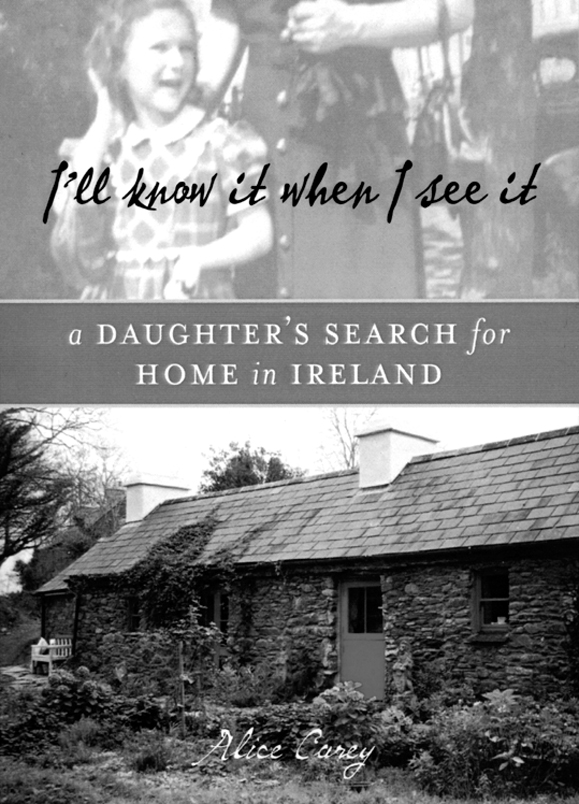
FICTION
In her first short story collection Living with Saints, Irish-American Mary O’Connell brings the likes of Saint Therese of Lisieux into the hectic lives and confused times of young American women.
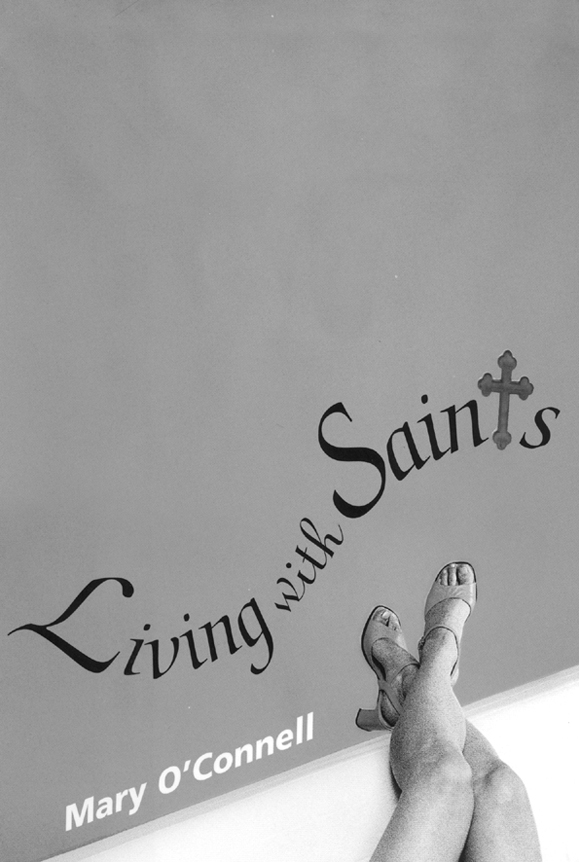
Suffice to say, this is not a faithful update of The Lives of the Saints. In “Saint Dymphna,” a girl decides to have an abortion, while in “Saint Therese of Lisieux,” a girl is forced to deal with an ill mother, her unkempt younger sister, and a sexually abusive father.
This all may sound intentionally blasphemous, but O’Connell’s stories are suffused with faith and sensitivity. In presenting 21st century versions of saints’ lives (which weren’t exactly prim and proper centuries ago), O’Connell is able to explore the often-ignored topic of religion and faith in modern life.
Not all of these 10 stories are executed with success; some feel like mere sketches. In others, the girls seem too quick with “Bridget Jones”-ish cynicism. But in exploring how faith endures (or crumbles) under the stress of adversity, O’Connell (who teaches at the Lawrence Arts Center, Kansas) has written a challenging debut story collection.
YOUNG ADULT
Mical Schneider’s Annie Quinn in America may make some readers shudder at first. This novel chronicles the misadventures of a lass sent from famine-ridden Ireland to meet up with big sister Bridget (a maid, of course). When Annie’s fiddle (!) is stolen by the smooth-talking Finnbarr O’Halloran, a chain of events sends Annie from packed New York ports to the Midwest. It sounds dodgy, but since there are so few young adult stories about Irish immigrants, Annie Quinn in America may deserve the benefit of the doubt. Schneider certainly makes a genuine effort to convey historical realities, as well as write a ripping yam, even if the details are a bit stage Irish. ($15.95 / 246 pages / Carolhoda Books)
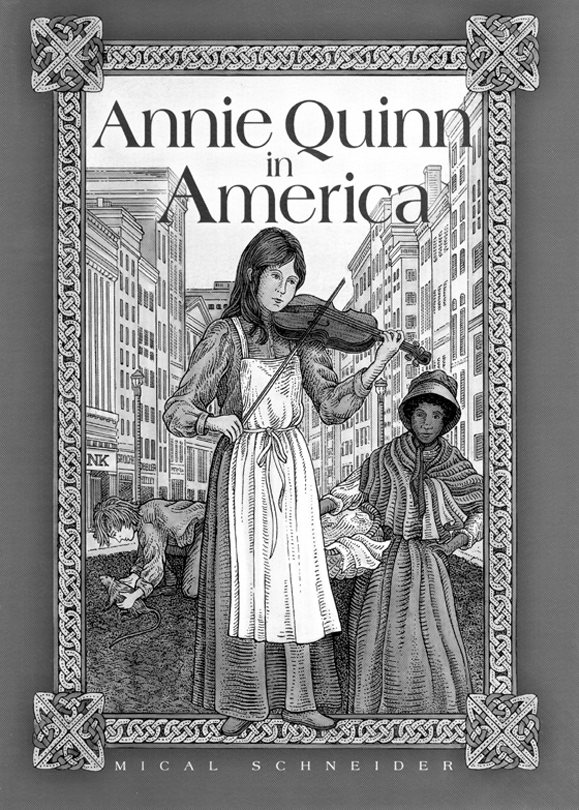
_______________
A fascinating read for young and old alike is Journey of Hope: The Story of Irish Immigration in America by the esteemed Kirby Miller and his wife Patricia. Dubbed “An Interactive History,” this short book offers very broad history, as well as revealing replicas of actual letters, ads and other artifacts which document the Irish American experience over the last three centuries. ($24.95 / 31 pages / Chronicle Books)
BIOGRAPHY
Fond, funny and poignant remembrances of New York icon John Cardinal O’Connor can be found in a new oral biography, Full of Grace. Author Terry Golway shows that O’Connor was not only proud of his Irish roots, but inspired many Irish and Irish Americans.
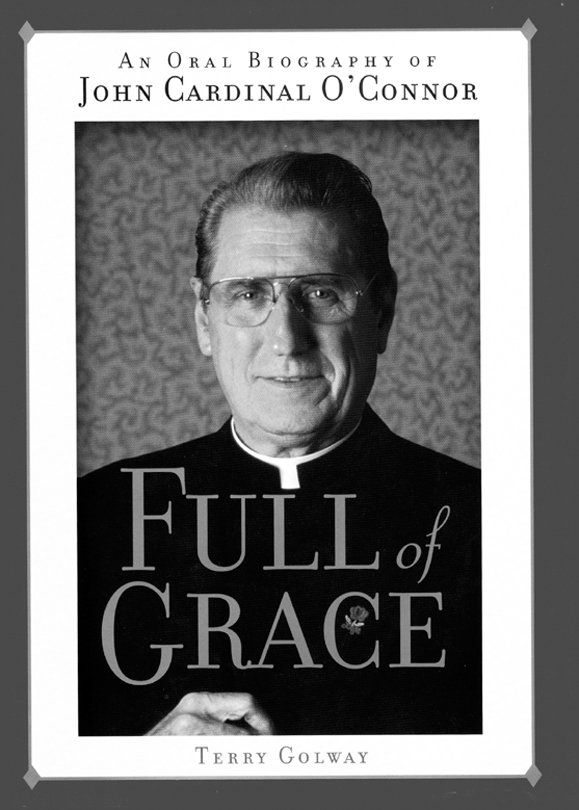
In one brilliant recollection, Congressman Pete King tells of mid-1990s “secret meeting[s]” between O’Connor, Gerry Adams and Martin McGuiness. “[McGuiness] was on cloud nine,” King recalls.
At the St. Patrick’s Day parade in 1996 — when the IRA had broken its ceasefire — King, Adams and O’Connor met on the steps of St. Patrick’s Cathedral. After Adams walked off, O’Connor grabbed King. “He yanks me back, and he nods to Gerry and says `He’s a good man. We have to take care of him.'”
Irish Secretary-General Patrick McKernan, meanwhile, recalls an event at which O’Connor corrected a speaker, pointing out the peace-minded origins of the Irish tricolor flag.
This is all classic O’Connor: tough, tender and decisive.
An editor at the New York Observer, and the author of several Irish histories, Golway includes, perhaps most touchingly, the words of eight-year-old Rachel Fader. Diagnosed with a brain aneurysm, she said this about O’Connor, with whom she shared an extraordinary correspondence of hand-written notes: “[You’re] the nicest man in the whole world.” ($22/236 pages/Pocket Books) ♦

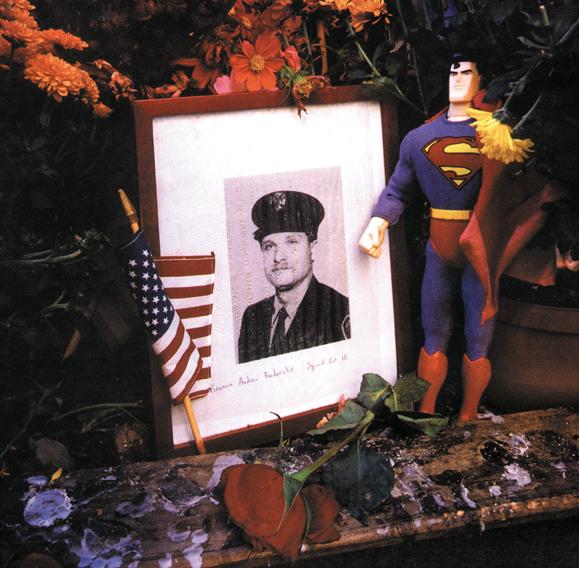
Leave a Reply